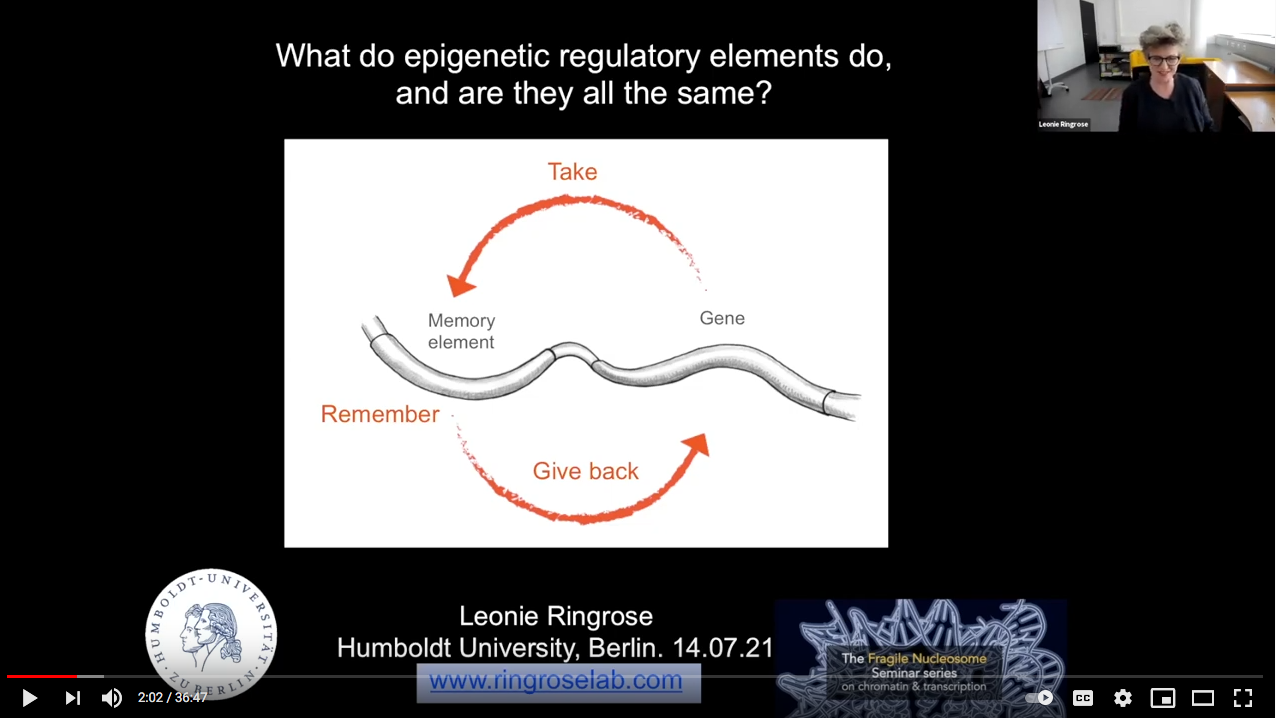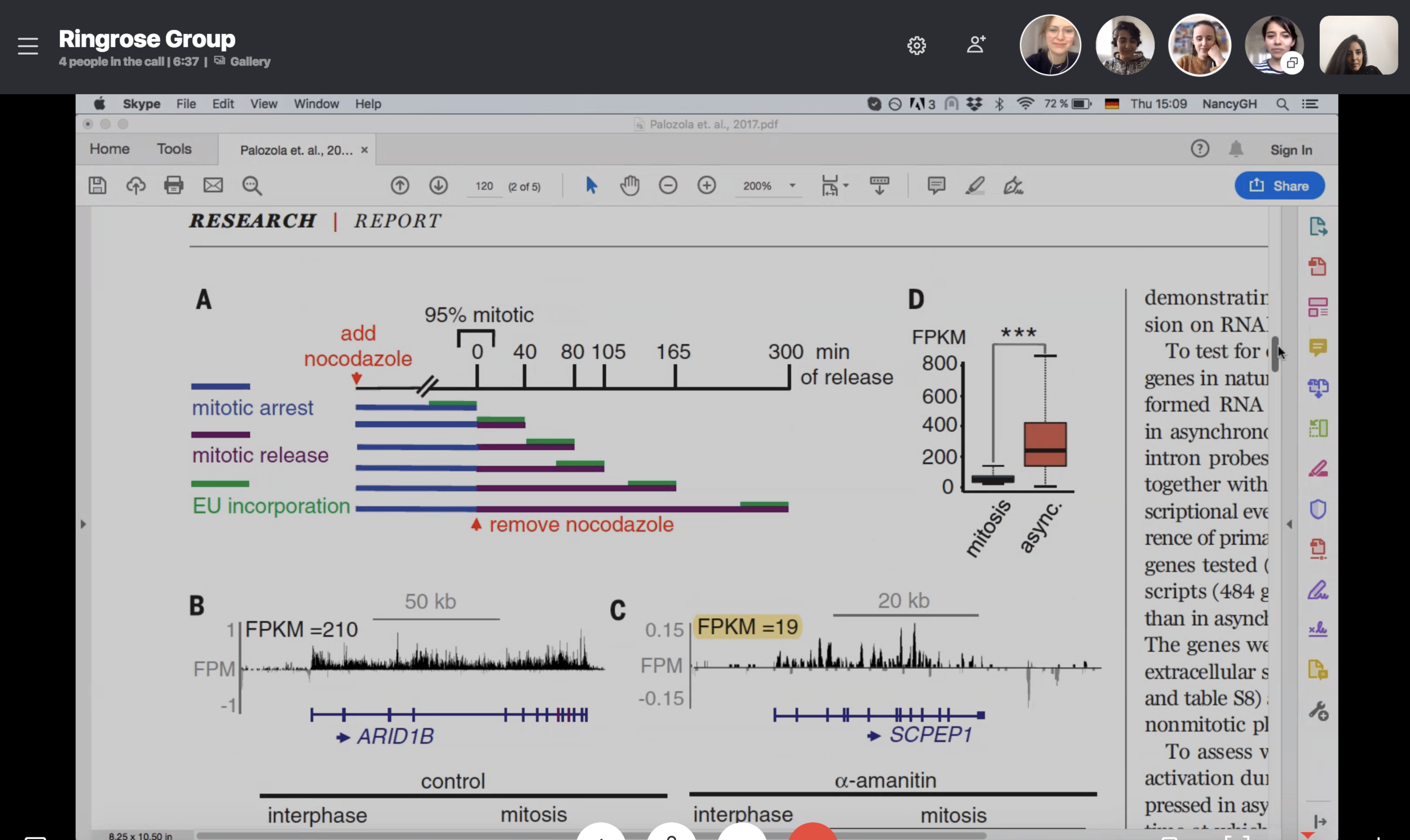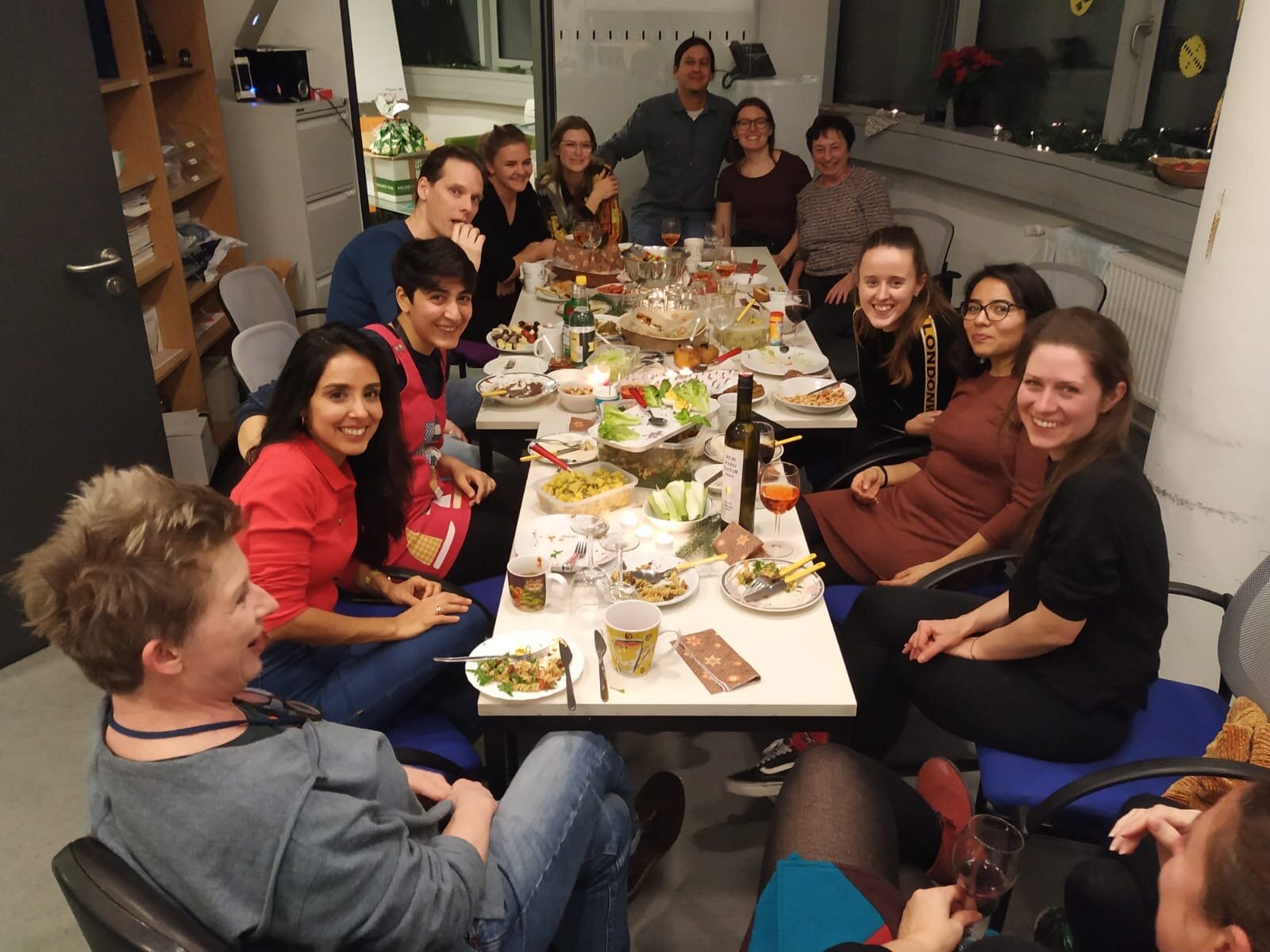July 31st 2021
Congratulations to Philipp Steffen, Leonie Ringrose and their co authors.
Their paper The Trithorax group protein ASH1 requires a combination of BAH domain and AT hooks, but not the SET domain, for mitotic chromatin binding and survival was published in Chromosoma today!
The AT hooks and BAH domain stabilise ASH1 binding during interphase but are not essential. The same domains cooperate during mitosis and are essential for full mitotic binding.
“Bookmarking” proteins bind mitotic chromatin and mark genes for reactivation after mitosis. They are essential for epigenetic memory of active gene expression states. The Trithorax group protein ASH1 is a transcriptional activator that has all the hallmarks of a bookmarking protein, but how it binds to mitotic chromatin, whether this is important, and which genes are affected by this mitotic binding, was unknown. Using quantitative live imaging and Drosophila genetics, we show that ASH1 attaches to mitotic chromatin differently during interphase and mitosis, and that the domains that attach it to mitotic chromatin are essential for survival. By genome wide profiling we identify several target genes of ASH1 that specifically require these mitotic attachment domains for their correct activation. This work opens the door for gene - specific investigation of ASH1 as a bookmarking protein, and for a further investigation of the structural basis of mitotic chromatin binding.












